If you're wondering about the perfect time to visit Lisbon, look no further than June. The city comes alive during the Lisbon Festivals, a longstanding tradition of vibrant street parties featuring events, parades, music, and grilled sardines.
The entire city is in a festive mood, with the most charismatic and historic neighborhoods such as Alfama, Bairro Alto, Bica, Castelo, and Mouraria offering a unique and lively atmosphere.
The pinnacle of these festivities occurs on June 13, the commemoration of Saint Anthony's (Santo António) birth, who is revered as the patron saint of the city.
The story of Saint Anthony
Fernando Martins de Bulhões, born in 1195 in Lisbon into a noble family, pursued his education at the Monastery of the Holy Cross in Coimbra, located in northern Portugal. When he turned 25, he expressed his desire to join the followers of Saint Francis of Assisi and adopted the name "Brother Anthony".
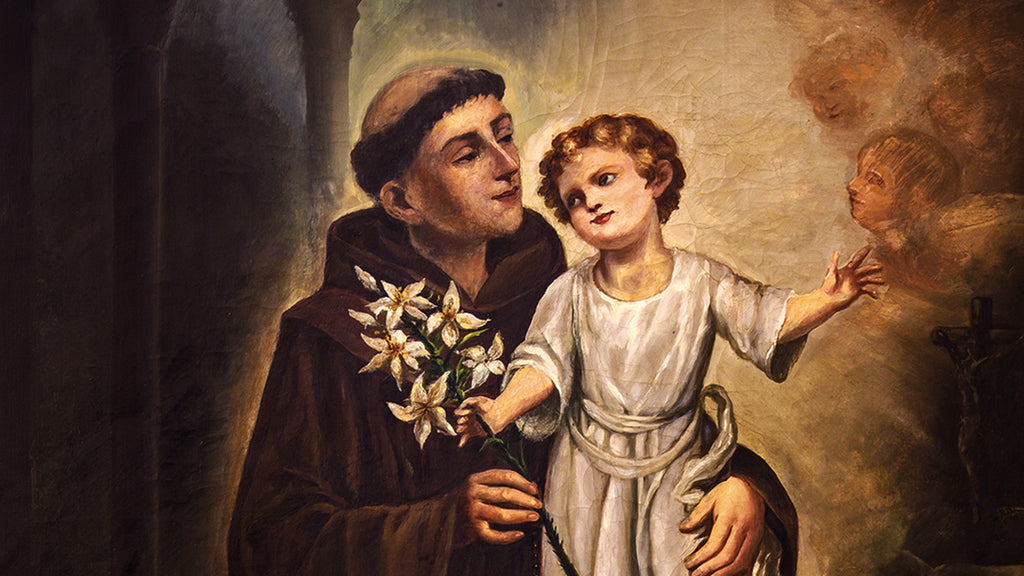
Renowned for his erudition, exceptional oratory skills, and remarkable preaching ability, he garnered attention from the Franciscans who appointed him to preach in France, leading to the conversion of numerous Cathars.
Upon returning to Italy, he served as an advisor to Pope Gregory IX for a period before being assigned to Padua, where he passed away on June 13 at the age of 36. The following year, he was canonized, with 40 miraculous healings attributed to him.
During the 15th and 16th centuries, devotion to him began to spread. He became invoked as a protector of sailors and prisoners, as well as a patron saint for finding lost items and restoring health.
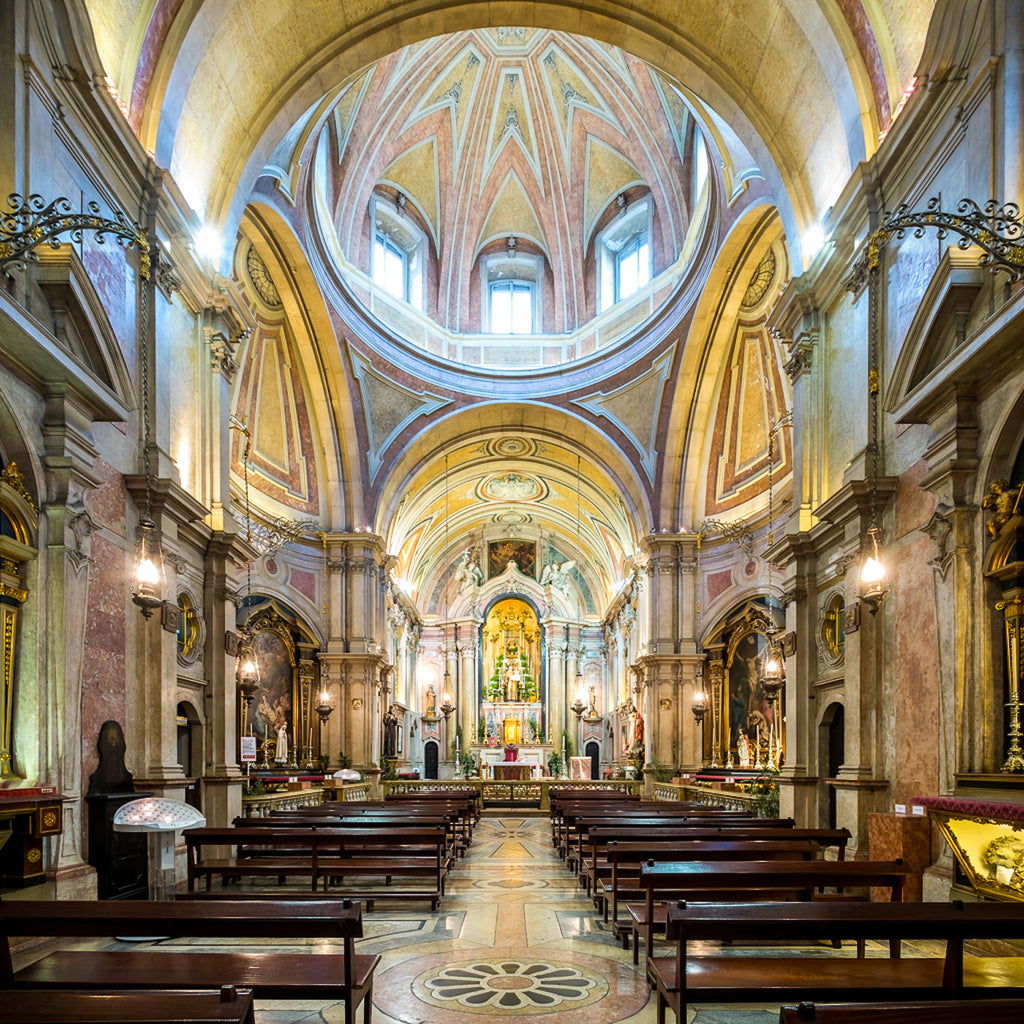
A Basilica in Padua was dedicated to him, earning him the title of "Saint Anthony of Padua." However, during the 15th century, the Portuguese capitalized on his Portuguese heritage, elevating his fame worldwide during the era of great discoveries. He was officially proclaimed the Patron Saint of Portugal, with a special emphasis on Lisbon, his birth city.
Since then, Portugal has continuously honored and celebrated him, with June 13 marking his birth anniversary as a public holiday in Lisbon.
The traditions of Saint Anthony
The traditions surrounding Saint Anthony have roots dating back to the 13th century and have continued to thrive to this day. Many scholars believe that the origins of the "Festas de Santo António" can be traced back to ancient pagan rituals associated with the celebration of the summer solstice.
Both in the past and in the present, the essence of these festivities lies in taking to the streets and joyously celebrating summer and life. It involves lively dancing, singing, indulging in delicious food and drinks, and engaging in conversations with neighbors, fostering a sense of community and shared merriment.
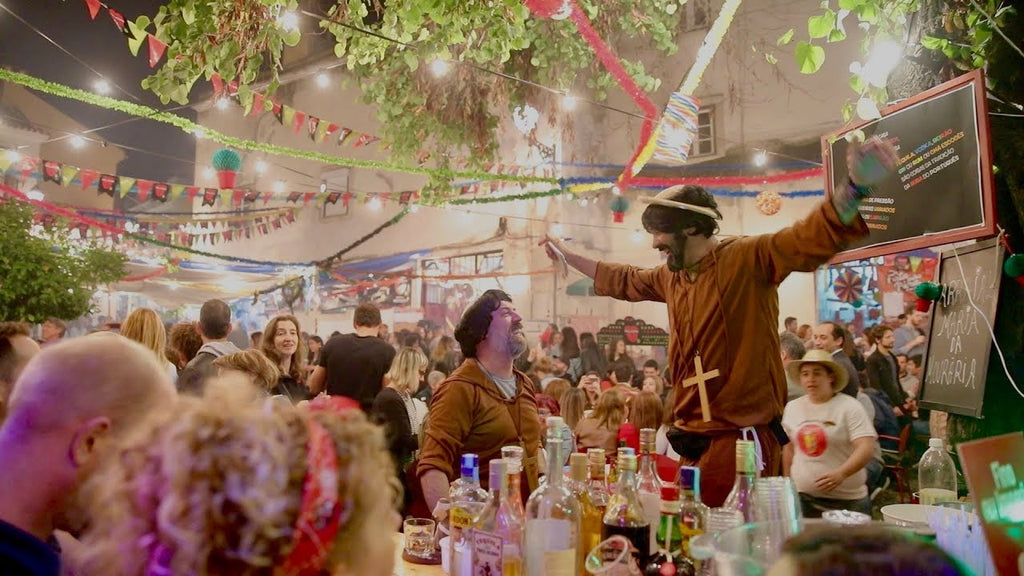
In addition to these popular festivals, many events and celebrations have gradually been added: the weddings of Saint Anthony and the popular marches are the most popular.
Saint Anthony's Day weddings
In 1958, the newspaper "Diário Popular" took the initiative to enable couples facing financial challenges to enter into matrimony. On June 12 of that same year, a significant milestone was reached when 26 couples were joined in marriage for the first time in the Church of Santo António in Lisbon.
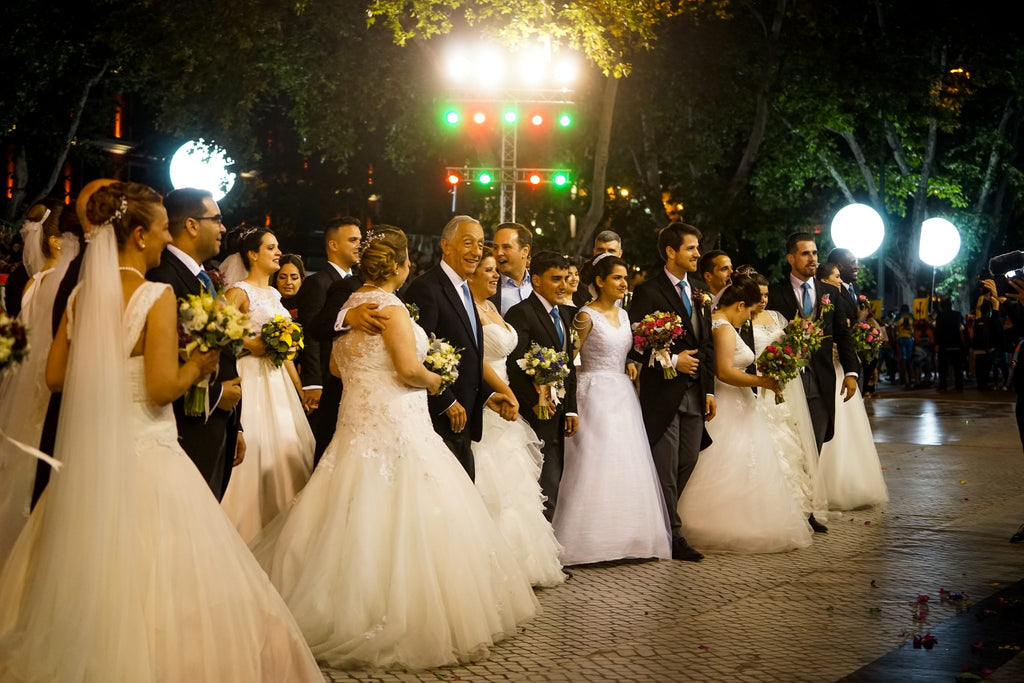
Covering every aspect from wedding rings and attire, including wedding dresses, tuxedos, and shoes, to the wedding night, bouquets, decorations, catering, trousseau, and even the stag party, over 63 partners of the event ensure that no detail is overlooked.
Today, the "Casamentos de Santo António" has become an integral part of Lisbon's popular tradition, solidifying its cultural identity year after year. It is an unmissable event that not only celebrates love and matrimony but also contributes to the vibrant cultural tapestry of the city.
The popular Saint Anthony's Day walks
Every year, on the night of June 12, the Avenida da Liberdade comes alive with the vibrant "Popular Walks" in Lisbon. Representing each district of the city, participants adorn themselves in themed costumes, perform original songs created specifically for the event, and showcase their creativity by parading down the city's largest avenue, captivating the entire population with their spirited displays.
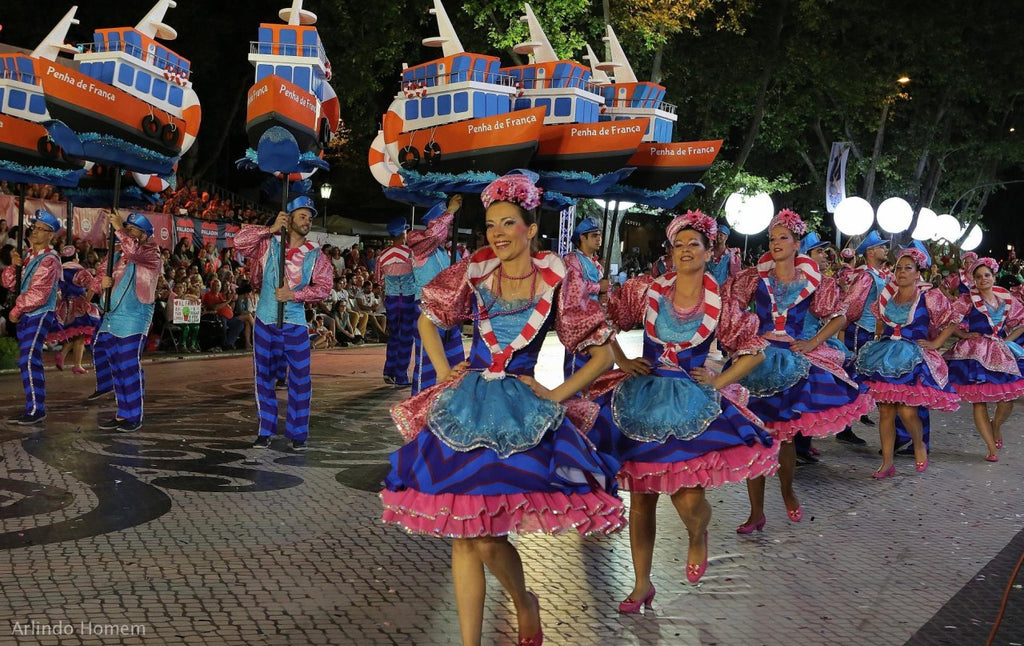
The roots of the popular marches can be traced back to the 19th century, originating from the tradition of the "torchlight march." During these marches, couples would walk through the streets illuminated by balloons attached to reeds.
In Lisbon, the popular marches made their debut in 1932 and swiftly evolved into a captivating musical and visual extravaganza, turning into a spirited competition among the city's most traditional districts.
Months before the event, children, youth, and adults come together to create, rehearse choreographies, compose songs, and prepare costumes and floats that represent their respective neighborhoods. The culmination of their efforts is a lively parade held on the city's renowned avenue, captivating spectators with its vibrant display of talent and community pride.
The celebrations of Lisbon.
Lisbon's festivities have expanded to encompass the entire month of June, with entertainment and celebrations taking place in every corner of the city. However, the pinnacle of these festivities is reached during the night of June 12th to 13th, where the atmosphere reaches its climax and the city comes alive with vibrant energy.
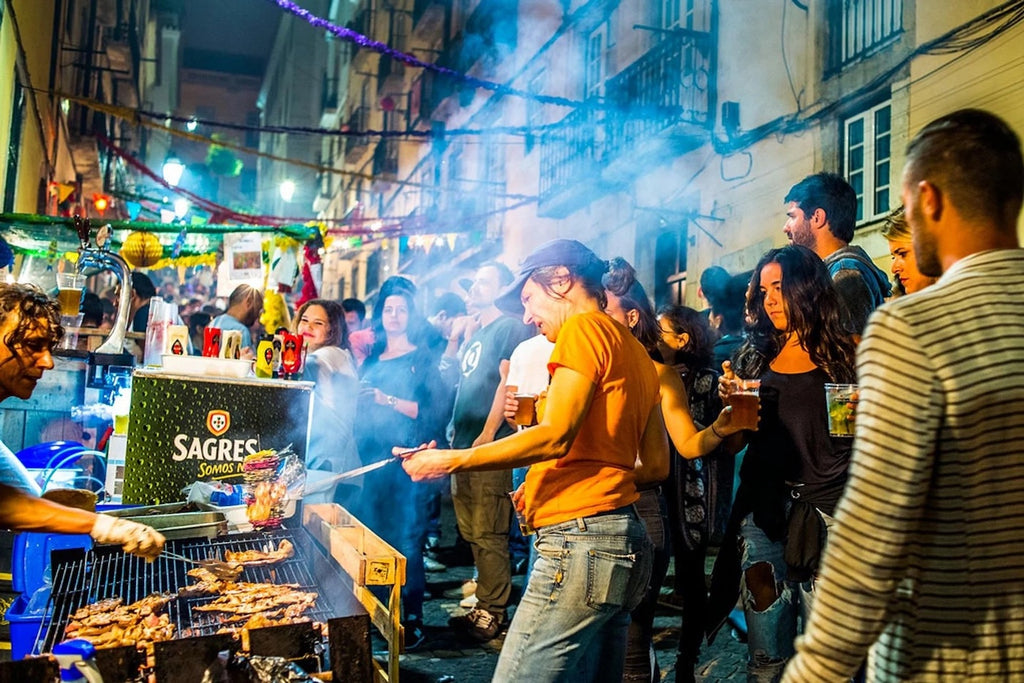
The lively festivities unfold on the streets of the characteristic districts of Alfama and Bica, where the party is in full swing. People from Lisbon, all over Portugal, and thousands of visitors come together, embracing the vibrant ambiance filled with popular music, while enjoying a drink and savoring grilled sardines in hand.
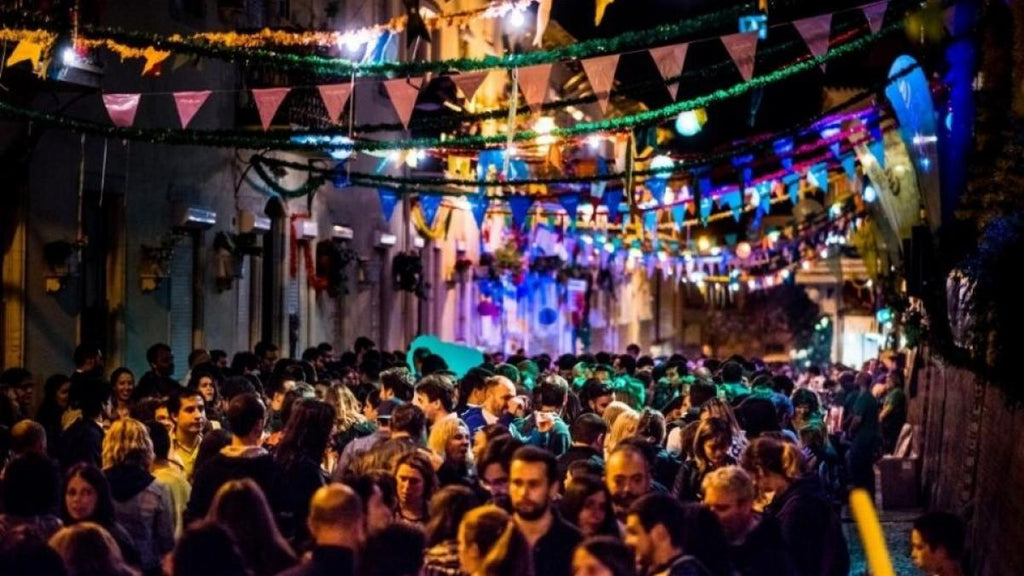
The night knows no bounds, so be prepared for an endless adventure as you wander through the streets and alleys of Lisbon. Get ready to embrace the charm of getting lost in the city, striking up conversations with locals and fellow revelers alike. Dance to the lively rhythms in every quaint square you encounter, and don't miss the opportunity to savor the renowned grilled sardines, whether it's on a terrace or at a cozy corner of an open-air bar.
Marjoram and St. Anthony's Day
Marjoram is an aromatic plant like coriander or oregano that grows and matures in the spring, at which time it is usually taken out of the ground and put into a pot.

On the Day of Saint Anthony, a cherished tradition involves presenting a jar of marjoram to one's fiancée, wife, or beloved. This jar is often adorned with a small flag bearing a popular verse about love.
The recipient of this heartfelt offering is then entrusted with the care of the marjoram pot until the following year's Saint Anthony's Day, when another one will be received.
If you are unable to visit Lisbon and partake in this tradition, you can still participate by gifting a pot of marjoram in earthenware, accompanied by its own small flag and a popular verse. Simply click on the image below to access the offering.

The figurines of Saint Anthony
Saint Anthony, the Patron Saint of Portugal, is revered by many for his protective intercession. While some Portuguese individuals hold a deep devotion to him, even non-believers are familiar with and hold respect for him. It is rare to find a Portuguese household without a figurine or illustration featuring the image of Saint Anthony.
In our online store, you will find a selection of ceramic or wax figurines. Simply click on the images to explore and discover them. Whether for personal devotion or as a cultural symbol, these representations of Saint Anthony are available for you to browse and choose from.

Santo António en céramique - Collection Luisa Paixão

Santo António en cire - Collection Luisa Paixão
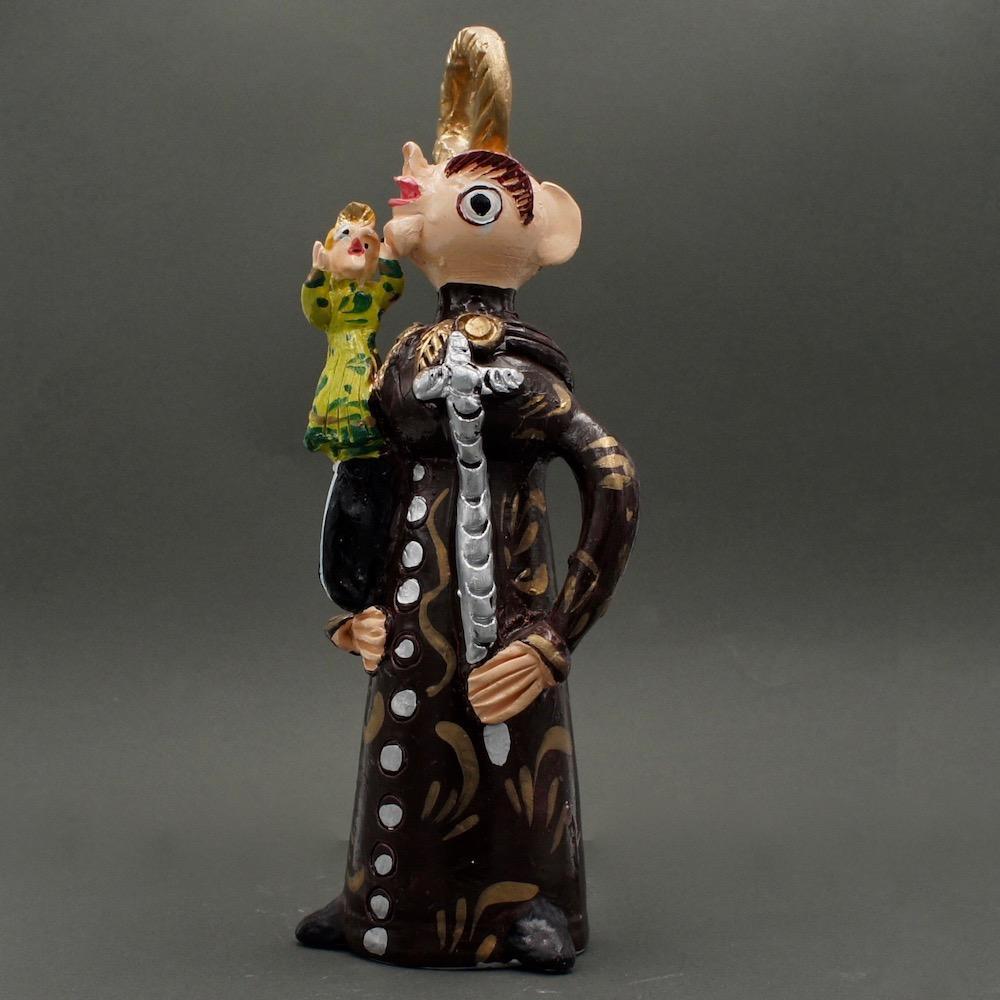
The Saint Anthony Festivals in Lisbon are an immersive and exciting experience, providing a glimpse into the rich Portuguese culture.
This fiery celebration of tradition and religious fervor offers an opportunity to discover the warm hospitality of Lisbon's inhabitants and their love for music, dance, and delectable food.
If you have the chance to visit Lisbon in June, don't miss the Saint Anthony Festivals—an unforgettable experience that will immerse you in the vibrant culture of Portugal.


1 comment
Thank you for your wonderful comment! Saint Anthony truly holds a special place in the hearts of the Portuguese people, and his figurines are a beautiful reflection of that devotion. The festivals in Lisbon sound absolutely magical and full of life. For those exploring meaningful connections and traditions, you might also find HelloPrenup an interesting resource.